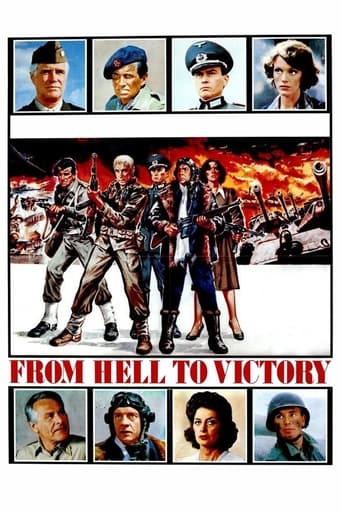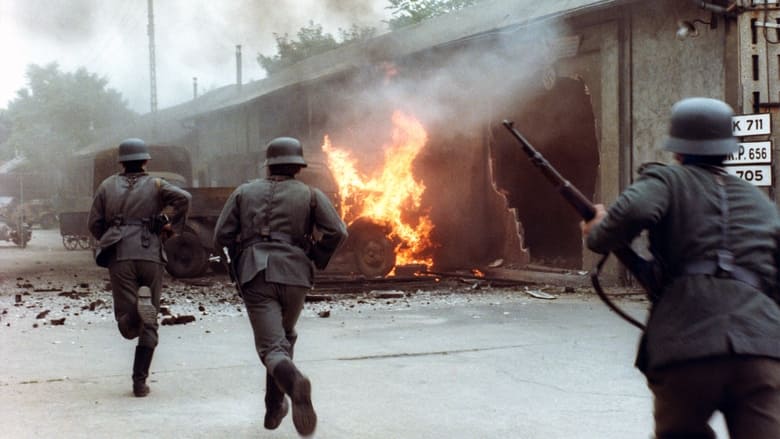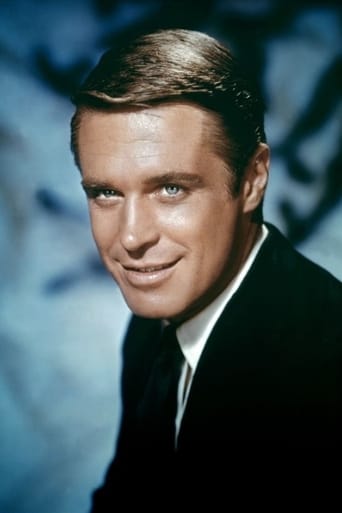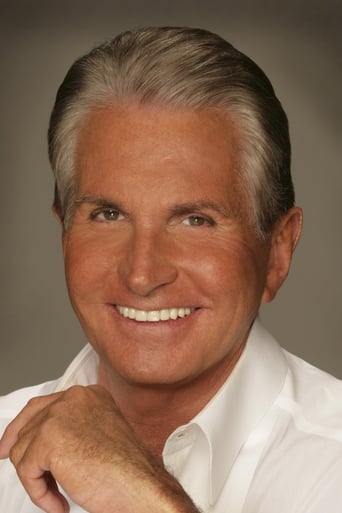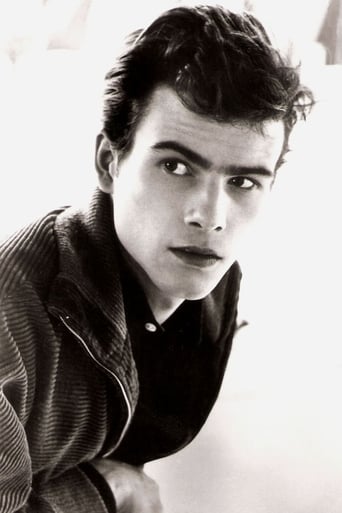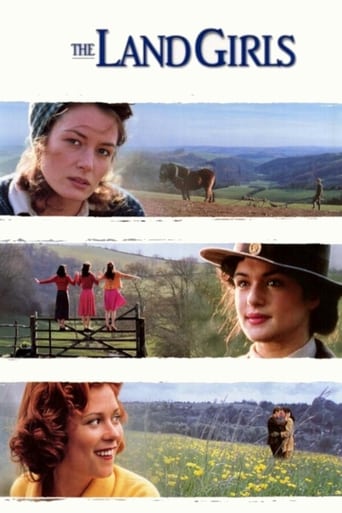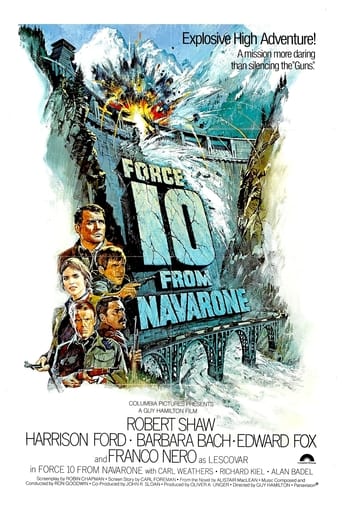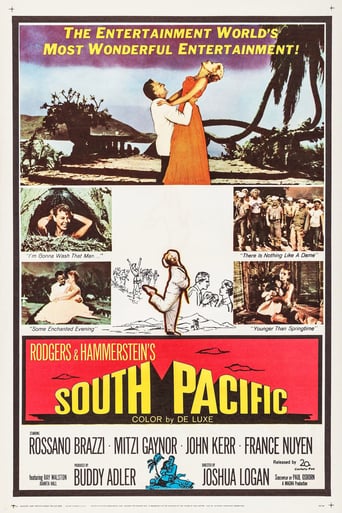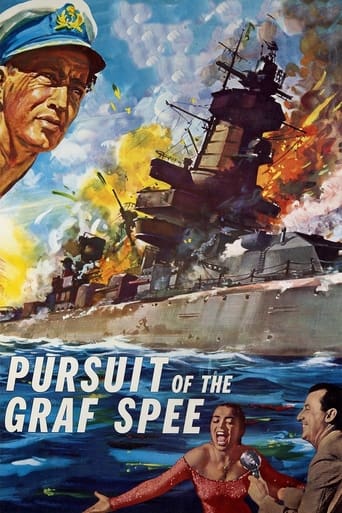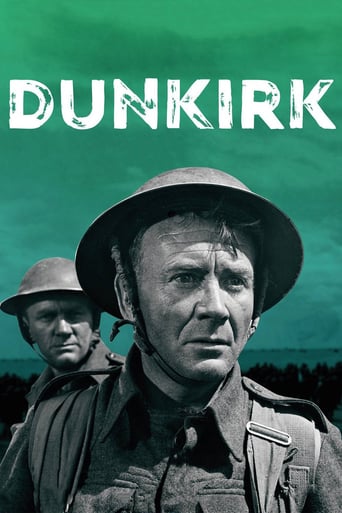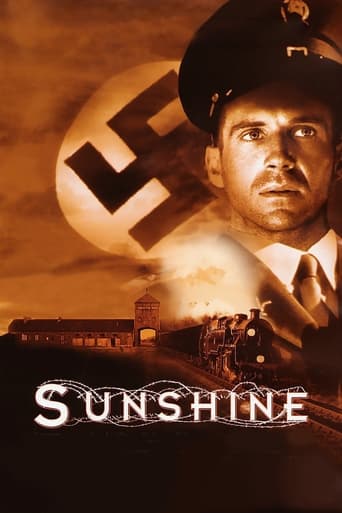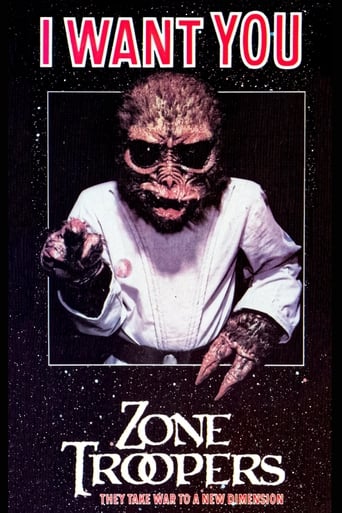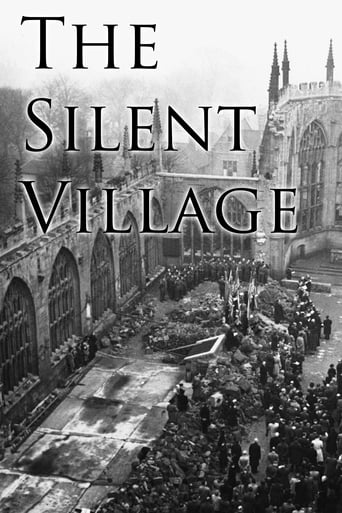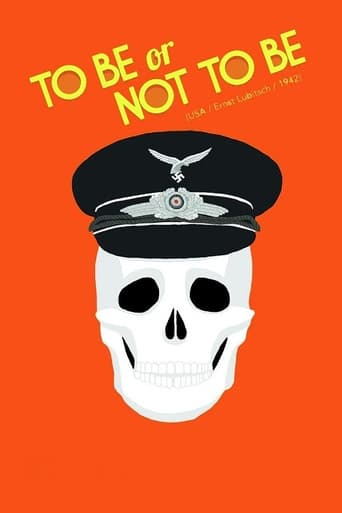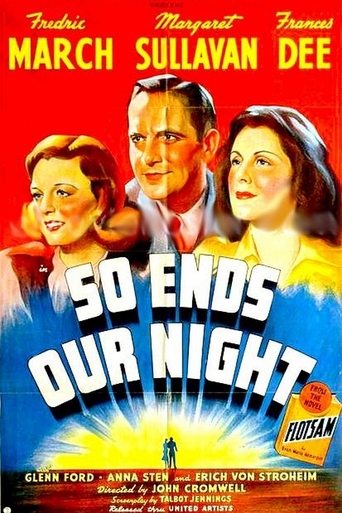From Hell to Victory (1979)
In 1939, at a Paris café, six friends of various nationalities vow to meet again at the same spot after the end of WW2.
Watch Trailer
Free Trial Channels
Cast


Similar titles
Reviews
Disturbing yet enthralling
The film makes a home in your brain and the only cure is to see it again.
A film with more than the usual spoiler issues. Talking about it in any detail feels akin to handing you a gift-wrapped present and saying, "I hope you like it -- It's a thriller about a diabolical secret experiment."
The movie turns out to be a little better than the average. Starting from a romantic formula often seen in the cinema, it ends in the most predictable (and somewhat bland) way.
The plot of "From Hell to Victory" had real possibilities. But the plot is the only good thing about this film. For such a large ensemble of known actors of the day, the performances are poor. George Peppard is the weakest as Brett Roson. Sam Wanamaker is the best as Ray MacDonald, but just fair. George Hamilton tries to be French as Maurice Bernard, and isn't too bad. Horst Buchohlz is almost speechless as Jürgen Dietrich. Anny Duperey and Capucine are so-so. Peppard's lackadaisical manner – a part of his usual persona, just doesn't cut it here for a soldier in combat. The screenplay is poor. It lacks life and any semblance of order. It's full of holes and choppy. That reflects also on the direction and film editing. Even the parts of actual footage or combat action from other films spliced in don't seem to work well. It was a good idea for a movie, but just needed a screenplay with some substance, some actors who could give it life, and good direction. This one isn't even good enough to keep in a war film collection.
'Contro 4 Bandiere' AKA 'From Hell to Victory' was a last hurrah in epic war film-making for director Umberto Lenzi. Lenzi first broke into this genre during the late 1960s when he made two Second World War potboilers, 'Desert Commandos' (1967) and 'Battle of the Commandos' (1969). While cheaply made, the films were energetic and drew attention to a young talent. Nearly a decade passed, however, before Lenzi touched upon war films again, preferring to work in giallo, poliziottescho, and horror. 'The Greatest Battle,' Lenzi's third war film, was a highly-budgeted flop in 1978 that included Henry Fonda, John Huston, and Orson Welles. Just one year later, Lenzi was given another chance with 'From Hell to Victory,' a bungled French-Italian co-production that again offered noteworthy actors and sizable production values.Outside of a few gialli and poliziotteschi, there are not many good things to say about Lenzi's résumé and his critics will find plenty of ammunition in 'From Hell to Victory.' The film offers a unique concept, but its plot line and script are mostly a rewrite of 'The Greatest Battle,' shown in theaters just one year before. Producer Edmondo Amati's inability to finance battle scenes is also clear throughout, with Lenzi using stock footage to piece together the action. While such cleverness may have worked in cinemas thirty years ago, Lenzi's penny-pinching is easily dissected through VHS tapes and DVD, making him an easy target for ridicule.'From Hell to Victory' opens in August, 1939, at a Parisian riverside café, where six intellectuals are enjoying a day out. With war on the horizon, these friends agree to reunite at the café every August 24th, regardless of circumstance. The Second World War breaks up their plans, however, as all six people disband across Europe. American Brett Rosson (George Peppard) becomes an OSS officer and meets up with estranged son Jim (Ray Lovelock), who is disgusted by his relationship with a French heiress (Capucine). Frenchman Maurice Bernard (George Hamilton) survives the Dunkirk evacuation and becomes a commando for the allied forces. Englishman Richard Sanders (Jean-Pierre Cassel), also a Dunkirk veteran, protects his country as an RAF fighter. German Jürgen Dietrich (Horst Buchholz) becomes a high-ranking Nazi officer. Second American Ray MacDonald (Sam Wanamaker) becomes a war correspondent in London, finally meeting his grown English daughter Mary (May Heatherly). The lone woman of the six is Fabienne Bonnoir (Anny Duperey), who joins the French Resistance.Like 'The Greatest Battle,' this film uses its characters as a springboard for wartime events. However, the script of 'From Hell to Victory' is considerably better; rather than using the characters as superficial glue, they are a key element of what is taking place. These six people are important to the larger wartime scenarios and they undergo a small amount of development. The storyline is more fleshed out than in 'The Greatest Battle' and there are actually some touching moments. To the film's credit, 'From Hell to Victory' is well-acted; Peppard, Hamilton, and the other cast members have sympathy for their roles and do their best to overcome the script's weaknesses.However, 'From Hell to Victory' is a technical fiasco. It is poorly shot, has incredibly bad editing, and does a rotten job of 'pretending' to be on a much greater scale than was actually filmed. When away from the battlefields, 'From Hell to Victory' has a fair amount of competence; but Lenzi (credited as 'Hank Milestone') did not have billions of francs or lira at his disposal and was forced to use aerial and infantry stock footage from larger productions. Care was taken in the new sequences to make them fit with the old, but it's all too obvious that clips were taken from another source. Lenzi and hack editor Vincenzo Tomassi attempted to hide this by using breakneck pacing and angle-changing that has been a constant in the director's films. This fast pace captures the insane atmosphere of war, but it also looks poorly organized and amateurish. Cinematographer José Luis Alcaine has won numerous awards for his work and you would never know it from the murky, uncoordinated picture that's on display here. On the other hand, there is fairly good dubbing and the uplifting orchestral score of Riz Ortolani actually rates with Hollywood compositions.With the Italian film industry waning in 1979, 'From Hell to Victory' was Lenzi's final chance to direct an epic and he finished light years short in most respects. 'From Hell to Victory' was doomed to budget limitations and had its fate sealed from the outset. This is unfortunate, because a wonderful idea is hiding underneath the poor script, slapdash direction, and horrendous technical work. One can only guess what might have resulted from a company with more time and finances at its disposal. Certainly, the film's plot would have been more thorough (it's just 101 minutes long!) and perhaps a few genuine planes and tanks would have been thrown into the bargain.'From Hell to Victory' was actually broadcast on CBS Television in the mid-80s and has survived on VHS tape amongst collectors. In 2004, Trinity Home Entertainment released a no-frills DVD that doesn't really improve on older versions. The film is presented in widescreen, but seems to have an incorrect aspect ratio at times; I can't tell if this resulted from a poor transfer or bad filming on Lenzi's part. Trinity never seems to clean up the titles in their catalogue and, unsurprisingly, this film is loaded with grain and artifacts. The sound is in Dolby 2.0, which brings Riz Ortolani's score to the forefront; however, dialogue carries an underlying hiss and crackle. You can forget about extras on this disc and it would be nice if Lenzi were interviewed about his war films at some point, especially since they drew the best actors of his career. If nothing else, 'From Hell to Victory' is a curious item and deserves one look for its major cast.** out of 4
The idea behind this film of 6 friends caught up in WWII promises so much but fails to deliver dismally. The idea of 6 friends, of differing nationalities, being forced to chose sides, their countries or their friends, alludes to the futility of war and that only nations make war, not individual people. The acting in this film, despite the presence of some very good actors, is strained and wooden. The combat sequences are awful with British aircraft having German markings and American aircraft having British markings. Those looking for historical actuary re. Equipment and uniforms should look elsewhere. This film just doesn't live up to the idea under lying it. Having said that the idea behind this film is excellent and if executed properly, and with a descent budget and cast, could rank along side the greatest war films of all time.
Infamous hack Umberto Lenzi returns to the war genre, this time to remake his own 1977 epic "The Greatest Battle". Both films are rather uneven, muddled attempts to capitalize on the success of Hollywood's huge 1976 money-maker, "Midway".Although "From Hell to Victory" is definitely the stronger of Lenzi's two back-to-back epics, the storyline is completely convoluted and a complete rip-off of the previous film. In August, 1939, six friends meet in Paris and vow to reunite every year at a café no matter what the circumstances. Needless to say, WWII changes that plan. Brett (George Peppard) returns to the United States and becomes an OSS officer; Maurice (George Hamilton) finds himself on the beach at Dunkirk; Jurgen (Horst Buchholz) joins the German army and becomes disillusioned by Nazism; Fabienne (Anne Duperey) joins the French resistance. Rick (Jean-Pierre Cassel) joins the RAF, and Ray (Sam Wanamaker) becomes a war correspondent. Their paths will cross throughout the film, concluding with a bittersweet reunion in France during the summer of 1944.Okay, that said, let's analyze this "story" a little bit. Lenzi presents us with thumbnail sketches of his characters, and then jumps right into the action. Throughout, there is little to no character development; we simply follow several people through the war. This mess should not be as entertaining as it is. And, at first glance this looks like a very original piece of work, but fans of the director will realize that it's just a complete hack job: for one thing, Lenzi's characters are straight out of "The Greatest Battle": Peppard mirrors Henry Fonda, in fact, even Ray Lovelock shows up here to play his pretty-boy son who turns into a hero (again); Hamilton is a takeoff of Giuliano Gemma, and even accompanies Lovelock on a mission to France (as Gemma did to North Africa in the previous film). Buchholz and Duperey fall in love, despite the fact that they are on opposite sides, a la Stacy Keach and Samantha Eggar the list simply goes on. A series of climaxes are taken straight out of "The Greatest Battle" as well: main characters kill one another from a distance without realizing they're killed a friend; the attack on a German bunker looks awfully familiar this is the third time Lenzi has shot the same type of shoot-'em-up sequence! Secondly, Lenzi also stages much of the action around stock footage from other, better films. A good deal of the expensive-looking tank battles is lifted from the 1967 epic "The Dirty Heroes", and almost all of the aerial battle photography is taken right out Enzo Castellari's "Eagles over London". The Dunkirk evacuation, in particular, is a total sham. What's amazing is how well this stock footage is edited with the original sequences I first saw "From Hell to Victory" a few years before "The Dirty Heroes" and "Eagles over London" and was awed by the scope; it wasn't until I saw these films that I realized how much of Lenzi's "work" was just cut from other movies. The only strong action sequence that stands out is a shootout atop the Eiffel Tower, which has got to be one of the most suspenseful, best-edited scenes ever shot. It compares to the most memorable moments in "The Last Hunter" and "The Dirty Dozen" it's just that good.For all of the lack of originality, this piece still manages to be fairly entertaining. The cast are all confident and able; it's finally nice to see Peppard in a role where he doesn't have to constantly chew the scenery (he's only a decent actor, not a dramatic genius); he simply is laid back and completely at ease with his surroundings. The ensemble cast does a pretty fair job as well: Ray Lovelock seems a lot more serious about his role than he did in "The Greatest Battle" and George Hamilton seems to be having plenty of fun as a French commando. Buchholz's performance is a little hard to swallow at times, and his character transition from pacifist to die-hard Nazi is not very rational because it is barely developed. Even so, he tries hard and makes his material fairly believable, even if he is still just delivering dialogue rather than really acting.Despite its many flaws, "From Hell to Victory" has become a widely circulated World War II film through the blessings of rental stores, flea markets and eBay. There's nothing to indicate to American audiences that it is a spaghetti war flick: the principles are familiar American and European actors, and the film plays a lot like a Hollywood drama. Lenzi's direction is somewhat restrained in comparison to his earlier efforts, almost as if he is trying to disguise his work. The credits list the crew and director under pseudonyms, rounding out its "Americanism". It's not a great film in any way, but it's packed with action and engaging situations. Don't go digging for this one, but if you see a dusty video copy, it's worth checking out.

